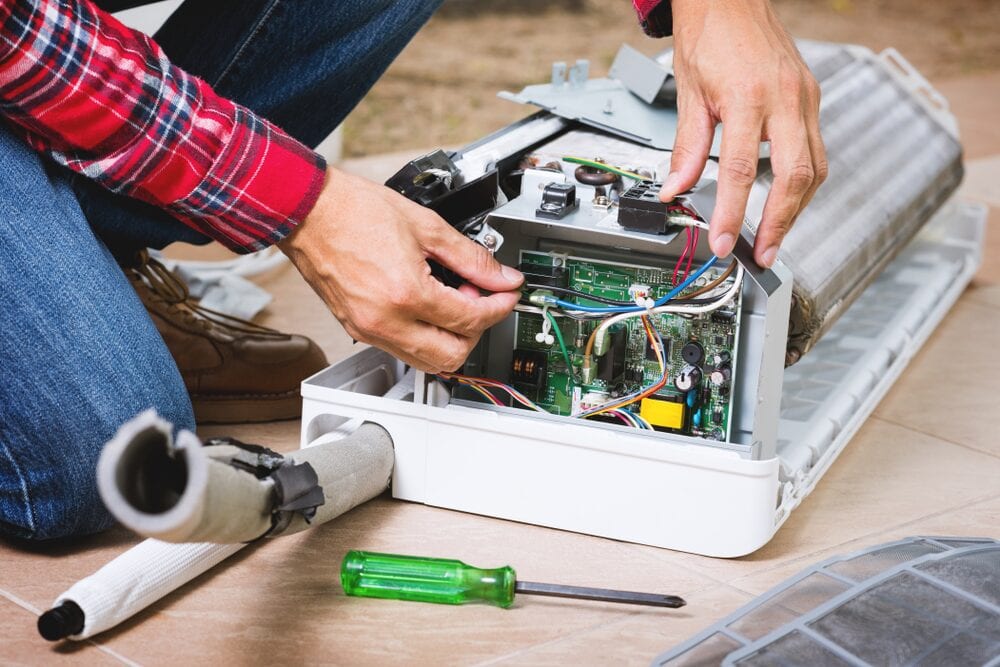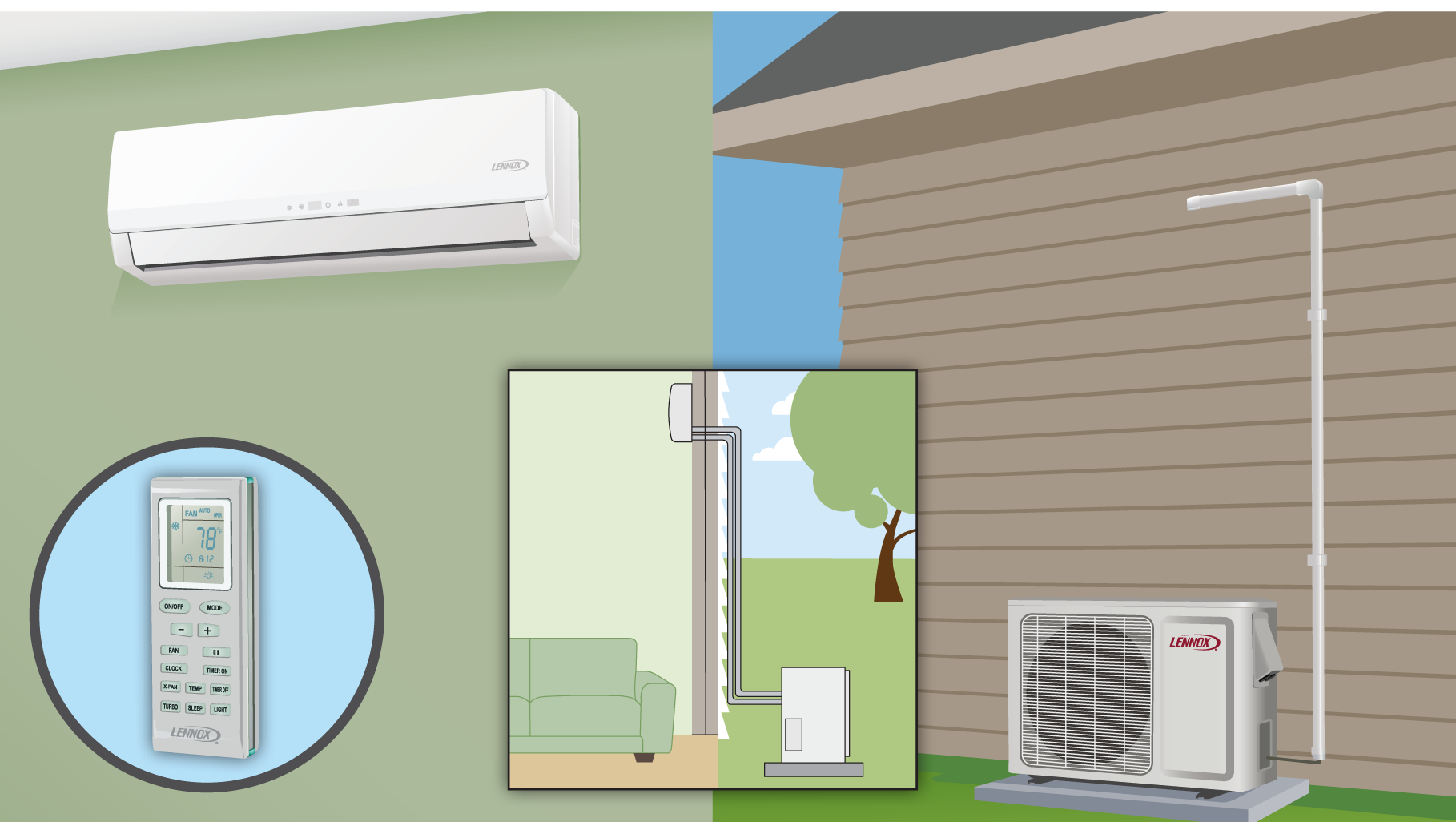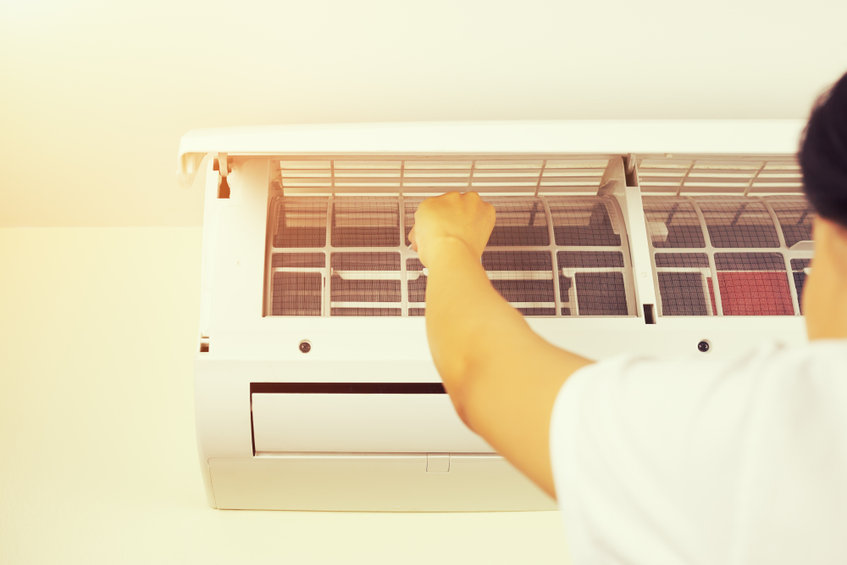Imagine your air conditioning unit as a master sculptor, adeptly chiseling away at the oppressive warmth in your house, leaving behind an amazing, comfy oasis. Have you ever asked yourself how this modern-day wonder attains such an accomplishment?
The complex dance of cooling agents, coils, compressors, and air ducts all work in consistency to create that stimulating blast of cool air. But how exactly do these elements integrated to create that much-needed reprieve from the blistering warm?
Let's uncover the internal functions of a/c and debunk the science behind staying cool.
Secret Takeaways
- Efficient Air conditioners make use of cooling agents to absorb and launch warm, enhancing air conditioning and power effectiveness.
- Normal upkeep makes certain optimum efficiency, long life, and power cost savings.
- Appropriate sizing and design protect against energy waste and make certain also cooling distribution.
- Comprehending airflow characteristics and optimization boosts cooling efficiency and comfort degrees.
The Fundamentals of Cooling
Comprehending the principles of cooling can significantly improve your understanding of exactly how these systems operate efficiently. Power efficiency is a critical facet of cooling, as it not only impacts your electrical power costs however additionally the environment. Reliable air conditioners utilize much less energy to cool a room, making them cost-effective and environmentally friendly. By buying an energy-efficient device, you can enjoy a comfy indoor atmosphere while reducing your carbon impact.
Humidity control is an additional important function of air conditioning. Ac unit aid control the dampness levels in your house, producing a more comfortable ambience. Excess humidity can cause mold development and pain, while reduced humidity levels can cause completely dry skin and respiratory system problems. A well-maintained a/c unit can properly control humidity, ensuring a healthy and enjoyable living environment for you and your family.
Comprehending how a/c systems take care of power effectiveness and humidity control can help you make informed choices when picking and using these systems in your house.

Comprehending Cooling Agents and Their Duty
When it involves ac system, recognizing refrigerants and their function is necessary. You'll learn about the relevance of refrigerants in cooling down systems and just how they promote the warmth transfer process.
In addition, considering the ecological effect of refrigerants is vital for sustainable air conditioning solutions.
Function of Refrigerants
Refrigerants play a crucial role in the operation of air conditioning unit by facilitating the transfer of heat. The performance of a cooling agent straight influences the cooling procedure and energy intake of the system.
When considering refrigerants, it's essential to evaluate their effectiveness versus their environmental ramifications. home ac repair Some refrigerants add to ozone depletion and worldwide warming, prompting the look for greener alternatives. Lasting measures focus on finding cooling agent options that are energy-efficient and have very little environmental impact.
Manufacturers are progressively buying creating brand-new cooling agents that align with sustainability goals. By prioritizing cooling agent efficiency and checking out sustainable alternatives, the air conditioning market aims to lower its carbon footprint and reduce ecological injury.
Ecological Impact Considerations
Thinking about the environmental effect of refrigerants is vital in examining the sustainability of cooling systems. When examining the ecological ramifications of ac system, 2 crucial variables to consider are energy efficiency requirements and carbon impact evaluation.
- Power Performance Specifications:
- Energy-efficient air conditioning system eat much less power, decreasing total power consumption and environmental effect.
- Carbon Impact Evaluation:
- Carrying out a carbon footprint analysis aids in recognizing the quantity of greenhouse gas emissions related to cooling operations.
- Cooling agent Choice:
- Selecting refrigerants with lower International Warming Potential (GWP) can especially lower the ecological influence.
- Correct Disposal:
- Guaranteeing proper disposal of old refrigerants avoids them from hurting the setting.
- Routine Maintenance:
- Routine maintenance of a/c systems can boost performance, decreasing power usage and ecological impact.
The Refine of Warm Transfer
When your air conditioner operates, it depends on a procedure of warmth transfer to cool your room effectively. This system involves the absorption of heat from the indoor air and the exchange of thermal power to maintain a comfy temperature level.
Recognizing this important element assists you grasp exactly how a/c efficiently control the climate in your house.
Warmth Absorption Device
To successfully cool down the air in your space, air conditioning unit use a warm absorption system that successfully moves warm. This system plays an important duty in preserving temperature guideline and making use of innovative cooling innovation.
Here's how the warm absorption procedure works:
- Cooling agent Circulation: The refrigerant takes in warmth from the indoor air.
- Compression: The compressor raises the pressure of the cooling agent, triggering its temperature level to rise.
- Condensation: The warm, pressurized cooling agent launches warmth outside as it condenses right into a fluid.
- Expansion Shutoff: This element reduces the cooling agent pressure, causing it to cool and vaporize.
- Dissipation: As the cooling agent vaporizes, it soaks up warmth from the interior air, beginning the cycle once again.
Thermal Power Exchange
In the process of thermal power exchange, warmth transfer plays an essential duty in exactly how a/c unit function to cool indoor rooms successfully. Thermal characteristics dictate that heat always flows from a warmer area to a cooler one. Ac system leverage this principle by drawing out heat from interior air and releasing it outside, using refrigerants to assist in the transfer.
Reliable thermal power exchange is essential for the energy performance of an a/c system. By maximizing warm transfer procedures, ac unit can cool rooms successfully while lessening energy consumption. Understanding the dynamics of warm transfer is essential for making and running a/c unit that supply the wanted degree of comfort without unnecessary power wastefulness.
Evaporator Coils and Their Function
Recognizing the function of evaporator coils is vital to understanding exactly how ac unit successfully cool interior rooms. These coils play a vital duty in the cooling process by taking in heat from the interior air, which is then circulated back as trendy air.
Below are some key points regarding evaporator coils:
- Evaporator coil efficiency directly impacts the cooling performance of the a/c unit.
- These coils have refrigerant that vaporizes as it takes in heat from the interior air.
- As the cooling agent evaporates, it alters from a fluid state to a gas, cooling down the air in the process.
- The cooled air is then distributed throughout the area by means of the duct.
- Proper upkeep of the evaporator coils, such as normal cleansing, is important to assure leading performance and energy performance.
Compressor and Condenser Operations
Efficiently cooling indoor rooms entails comprehending exactly how the compressor and condenser work together in a cooling system. The compressor plays a pivotal function in the cooling process by pressurizing the refrigerant gas, increasing its temperature level and energy degree. This high-energy gas after that flows to the condenser, where it launches warmth to the surrounding environment, causing it to condense into a high-pressure liquid.
The condenser additionally cools this liquid through heat exchange with the outside air, transforming it back right into a low-pressure gas. This process boosts energy performance and increases the system's cooling power. Temperature policy is attained as the refrigerant cycles through these system components, taking in warm inside your home and releasing it outdoors.

Air Ducts and Air Circulation
To maximize air flow and warranty regular cooling throughout your space, proper installation and maintenance of air ducts are important. Guaranteeing that your air ducts are designed efficiently and in a manner that advertises suitable airflow dynamics is critical for the general performance of your a/c system. Ventilation strategies play a substantial role in preserving indoor convenience levels, so it is necessary to take notice of the following:
- Duct Design: Correctly made duct assist make certain that cool air gets to every edge of your area efficiently.
- Airflow Characteristics: Recognizing just how air actions via the ducts can assist you identify any prospective concerns that might interfere with the air conditioning procedure.
- Normal Upkeep: Maintaining your duct clean and devoid of obstructions is essential for keeping air flow and system efficiency.
- Sealing Leakages: Guaranteeing that there are no leaks in your ductwork aids prevent amazing air from escaping, enhancing power performance.
- Balancing Air flow: Properly balancing the airflow in different areas can aid maintain regular cooling throughout your office or home.
Frequently Asked Concerns
Exactly how Does the Dimension of an Ac System Affect Its Efficiency and Air Conditioning Capability?
When choosing an a/c, remember that dimension matters. A device that's also tiny may struggle to cool your room effectively, while a large one could squander power and not evaporate appropriately. Guaranteeing appropriate sizing factors to consider will improve performance and cooling capacity.
The ideal dimension straight impacts efficiency, helping you remain comfy without unnecessary costs. So, when it concerns air conditioning unit, bear in mind dimension for finest efficiency and cooling power.
What Are Some Typical Maintenance Tasks That Can Help Enhance the Lifespan of an Air Conditioner?
Regular upkeep jobs can greatly extend the life of your air conditioner. Remember to change filters to guarantee proper air movement and tidy coils to enhance cooling down effectiveness.
Additionally, calibrate your thermostat for exact temperature readings and inspect the cooling agent levels for ideal performance.
Can Air Conditioners Be Used in Conjunction With Other Air Conditioning Approaches, Such as Fans or Dehumidifiers?
Yes, you can improve your cooling experience by combining your air conditioner with followers. This collaboration can help distribute cool air more effectively, providing an extra comfortable environment and potentially conserving energy.
Furthermore, utilizing a dehumidifier alongside your a/c can enhance cooling down efficiency by minimizing humidity levels, making your room really feel cooler.
Take into consideration these choices to enhance your air conditioning configuration and boost your overall comfort during warm days.

Are There Any Type Of Environmental Problems Related To making use of Air Conditioners, and Exactly How Can They Be Mitigated?

When utilizing a/c unit, bear in mind environmental worries like power usage and greenhouse gas discharges.
To minimize these issues, take into consideration lasting cooling methods and environmentally friendly alternatives.
You can reduce the influence of air conditioners by utilizing energy-efficient versions, keeping them regularly, and integrating various other cooling strategies like followers or dehumidifiers.
What Improvements Are Being Made in Cooling Technology to Make Devices Extra Energy-Efficient and Environmentally Friendly?
To make air conditioners much more energy-efficient and eco-friendly, developments like smart technology and green attributes are being established. These innovations focus on raising energy cost savings and decreasing ecological effect.
By integrating clever modern technology, cooling units can maximize efficiency based on usage patterns. Using environment-friendly materials and elements also adds to making these units more lasting.
These improvements aim to improve efficiency while reducing the environmental footprint of cooling modern technology.
Final thought
So, currently you know exactly how ac system work!
From the cooling agents circulating through the system to the heat transfer procedure, each element plays a crucial role in keeping you cool down.
The evaporator coils absorb heat, the compressor and condenser release it, and the air ducts distribute the trendy air throughout your area.
Next time you activate your AC, keep in mind the science behind all of it! Stay awesome!
